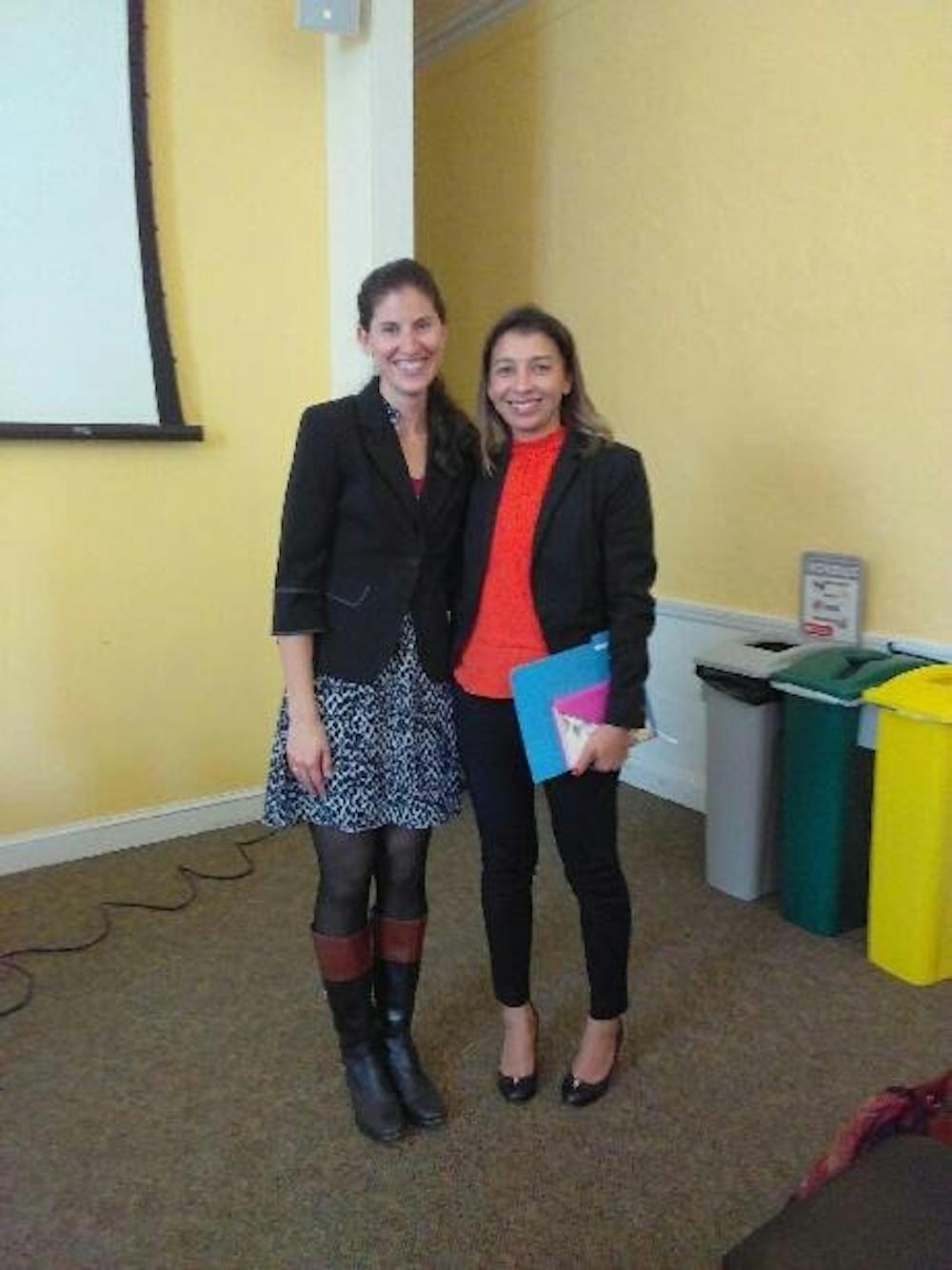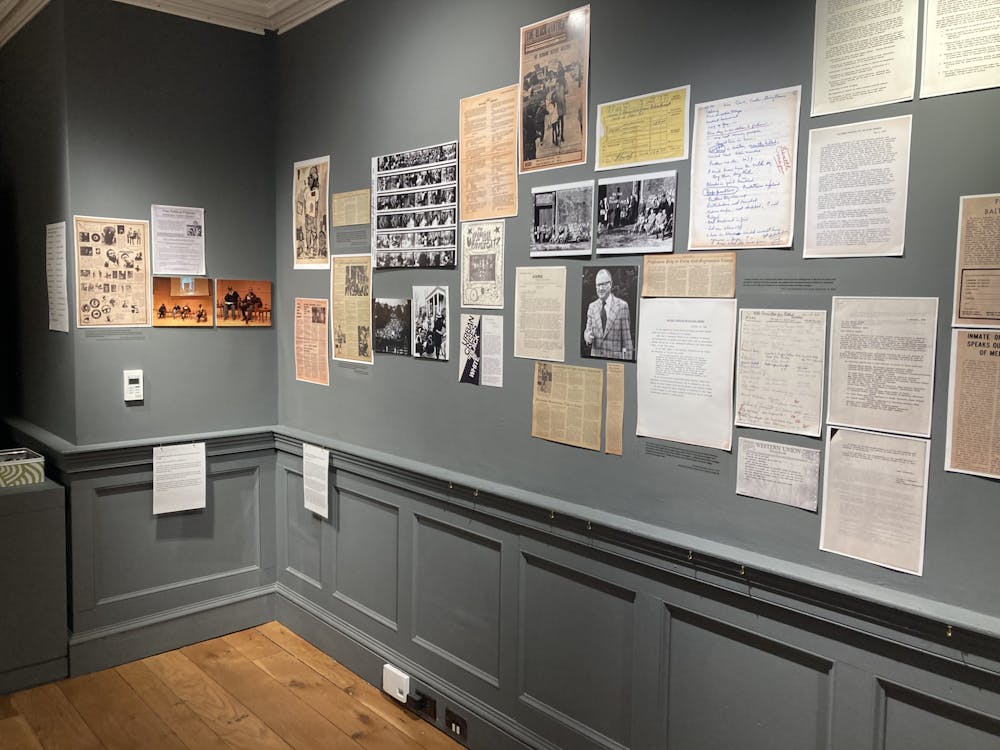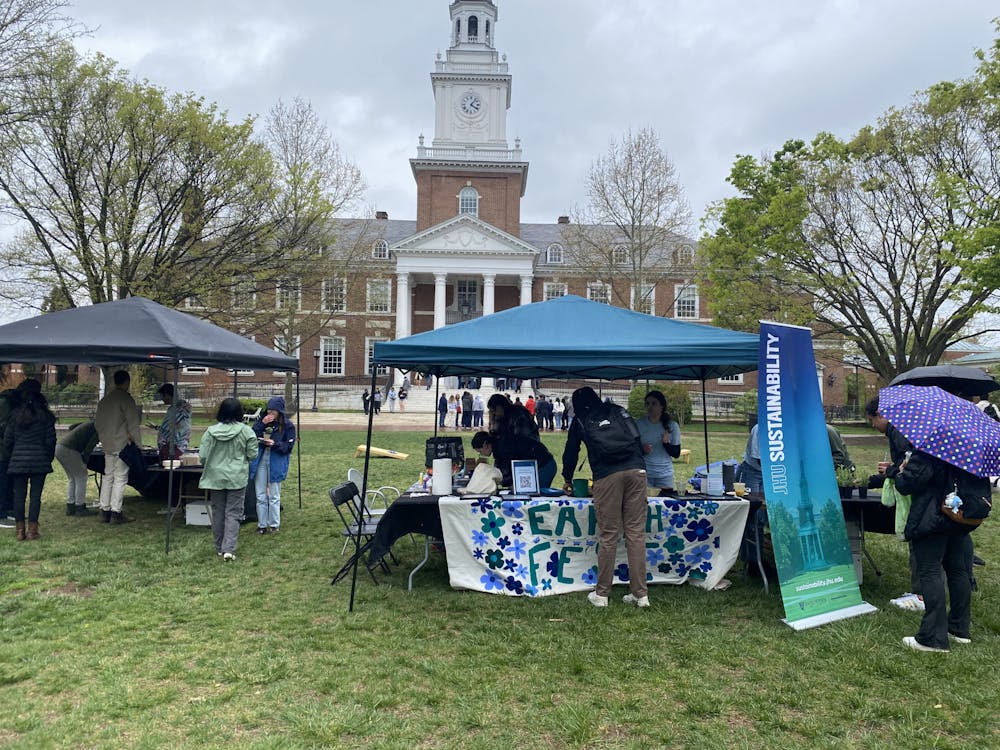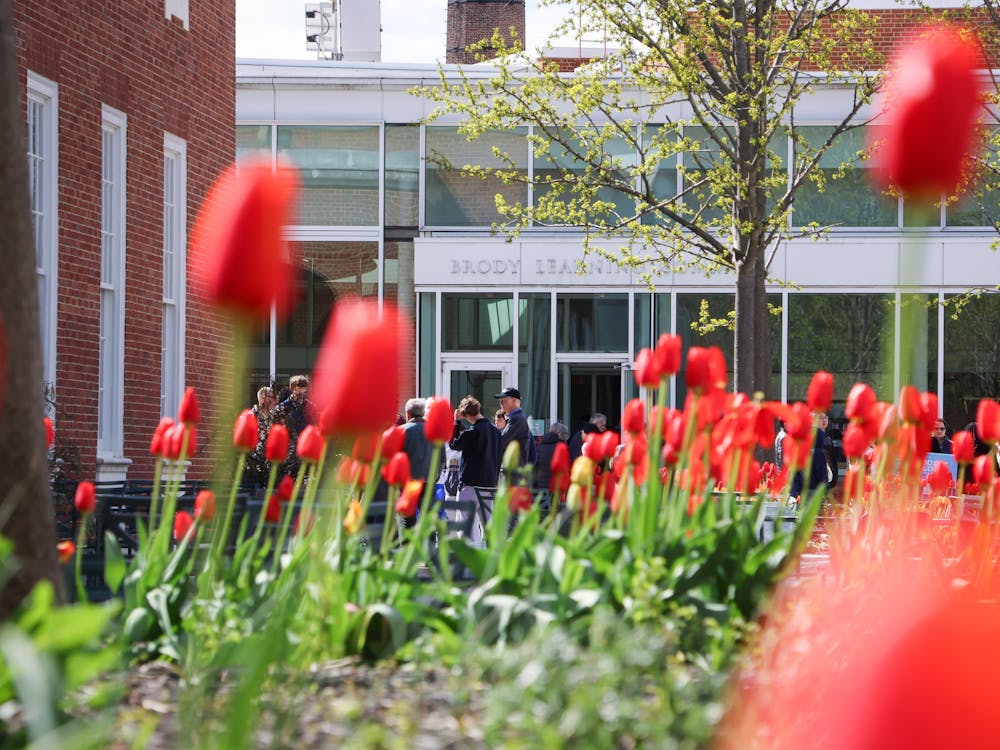As part of the Portuguese Program Speaker Series, Johanna Richlin, an assistant research professor in the anthropology department, spoke on Wednesday about the religious identities of Brazilian immigrants in a talk titled “The Gods of the Diaspora: Brazilian Migrant Faith in Comparative Perspective.”
The Portuguese Program Speaker Series is put together each semester by Flavia Azeredo-Cerqueira, director of the Portuguese Language Program at Hopkins, which is run within the department of German and Romance languages and literatures.
She explained that this series allowed students to discover more about Portuguese.
“There is no way for students to really know a language without knowing the culture for that language,” she said. “I find that it is my responsibility as director of the program to offer this extra-academic activity to fill this gap.”
The series brings different professors and experts in the field to speak to students about various cultural aspects of the Portuguese population. Last semester, topics included affirmative action and race relations in Brazil and Latin American literature.
According to Azeredo-Cerqueira, the topic of immigration, as well as religion, seems particularly relevant today.
“Race and religion are very sensitive topics, especially as we are in Baltimore,” she said. “People can be more aware of these topics and how they overlap here.”
During the talk, Richlin spoke about trends in religious identification in Brazil. She also discussed how the immigration experience affects the religious identity of immigrants — specifically those immigrating from Brazil.
According to Richlin, many Brazilian immigrants are undocumented and fear for their safety. They also have to cope with separating from their loved ones.
“There are many negative emotions associated with migrant life, including loneliness, bitterness, fear and despair,” Richlin said. “As a result of these emotions, immigrants often seek warmth and hope in religion. The migrant experience often pushes people closer to God.”
In addition to the increase in spirituality for Brazilian migrants, Richlin presented interesting trends in the faiths that the immigrants practiced. Evangelical Christianity as well as Spiritism have been on the rise, while Catholicism has declined.
Through fieldwork in D.C., Richlin identified driving forces behind these trends.
She explained that the Evangelical and Spiritualist churches approach the migrant experience differently from Catholic churches.
To Brazilian migrants, Richlin said, the Catholic Church seemed cold and solemn and lacked a sense of community.
“The particular challenges that Brazilian migrants faced in the United States drove religious yearnings that oriented migrants towards the Evangelical theology,” she said.
According to the 2010 Brazilian Census, 65 percent of the Brazilian population identify as Catholic, though Richlin explained that many of these people practiced “folk-Catholicism,” a combination of Catholicism and local cultural beliefs.
Because not all Brazilian immigrants identify as Brazilian, Catholic churches categorized Brazilian immigrants as immigrants/refugees/other, rather than under a specific culture.
Richlin attributed this broad cultural categorization as another reason why American Catholicism has trouble retaining followers from Brazil.
She explained that to Brazilian immigrants, Evangelical churches served as a counterpoint to the solemnity of Catholicism. Richlin believes immigrants felt Evangelical and Spiritualist churches appealed to the migrant experience by pointing to God as a source of hope.
Freshman Tali Lesser appreciated learning about how the Evangelical church presented itself to migrants.
“I especially liked her mention of the phrase ‘The Church is a hospital for sinners, not a museum for saints,’” Lesser said. “It presents a very interesting perspective about what migrants are seeking.”
The next event in the Portuguese Program Speaker Series is a talk by Alessandro Angelini, assistant research professor in the department of anthropology. The talk is titled “Dispatches from the Littlest Favela in Brazil.”
















Please note All comments are eligible for publication in The News-Letter.